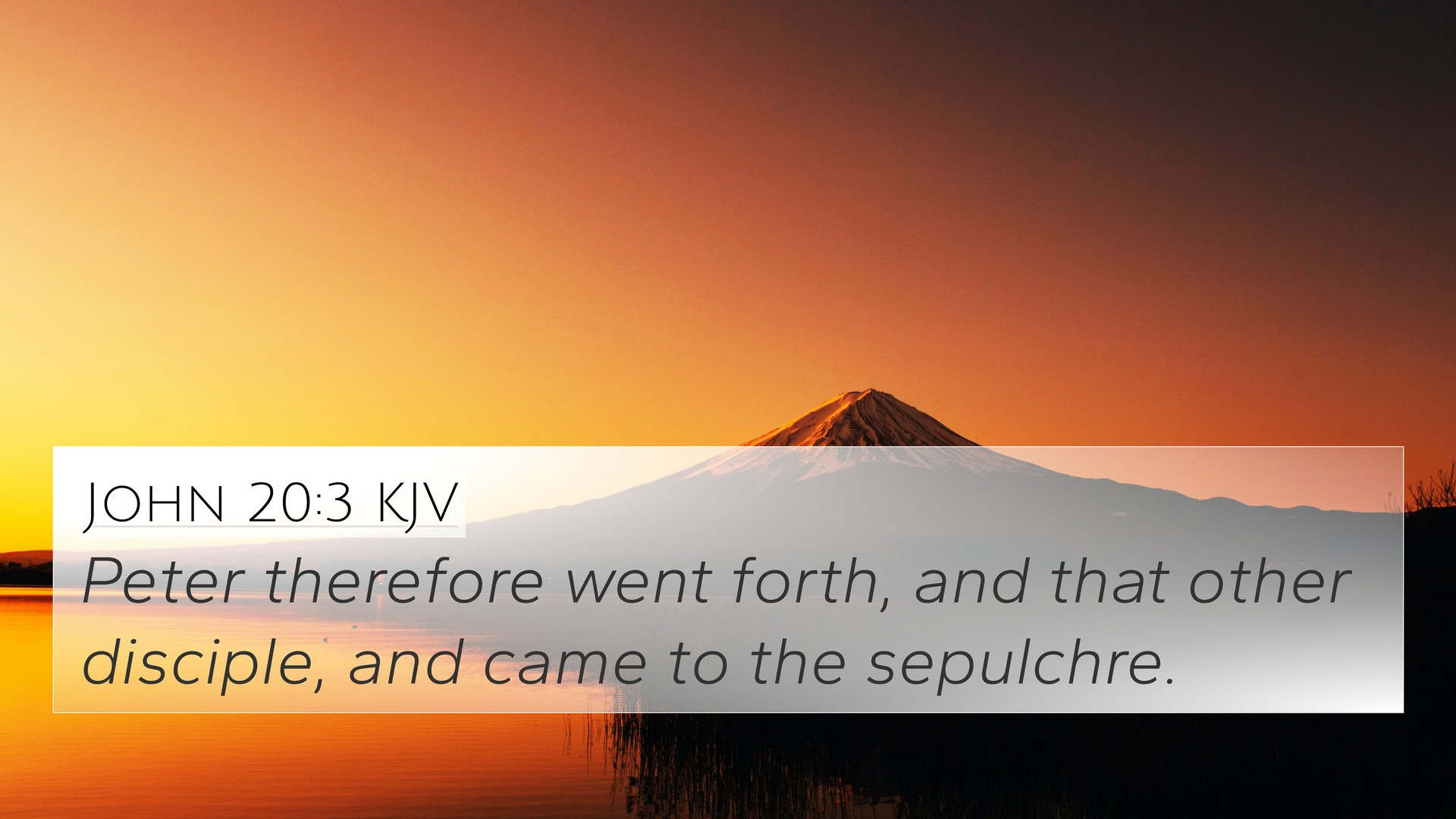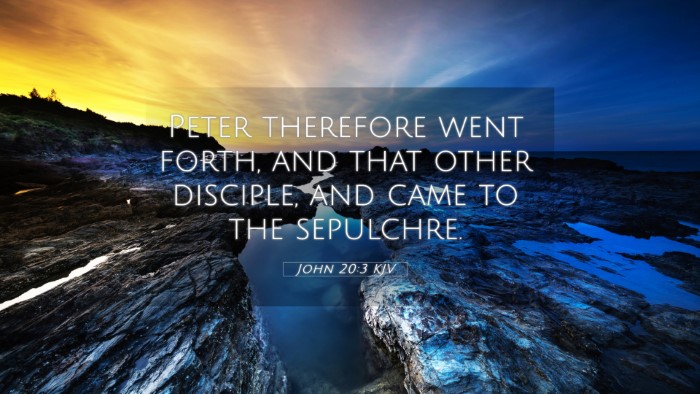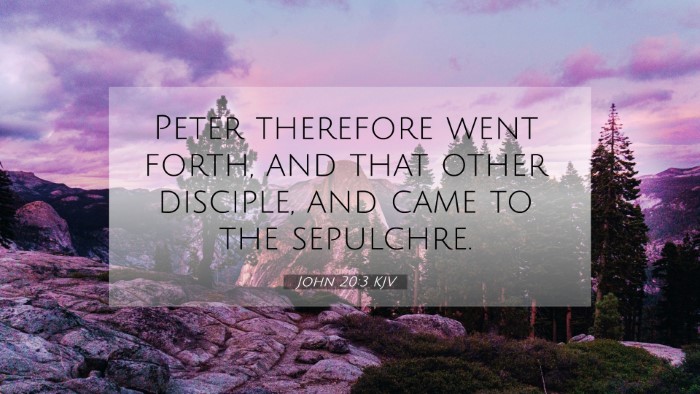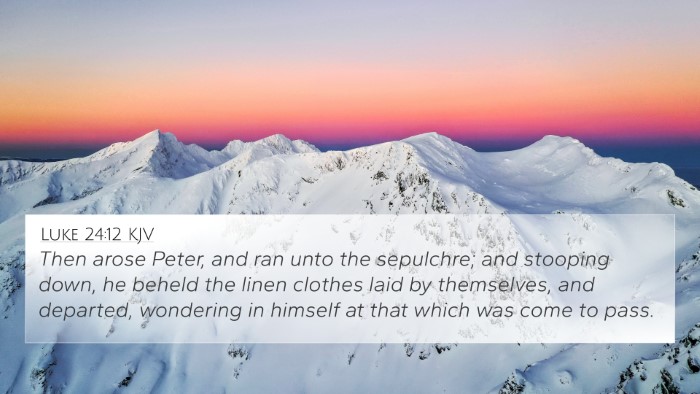Understanding John 20:3
Verse: “So Peter went out, and the other disciple, and they were going toward the tomb.” (John 20:3)
John 20:3 depicts a significant moment right after the resurrection of Jesus. This verse captures the urgency and action taken by Peter and the other disciple, often understood to be John himself, as they run towards the tomb to investigate the report of the empty grave.
Meaning and Context
This account is placed in the context of the resurrection narrative, illustrating the disciples’ initial reactions to the news of Jesus' resurrection. The verse emphasizes the human emotion of confusion and the quest for understanding in the face of miraculous events.
Theoretical Insights
- Matthew Henry: Henry emphasizes the zealousness of the disciples, shedding light on their devotion and eagerness to confirm the truth of the resurrection.
- Albert Barnes: Barnes highlights that their immediate response was one of physical action, indicating deep concern and love for their Master.
- Adam Clarke: Clarke notes the contrast between Peter's character as the impulsive leader and the other disciple, demonstrating a partnership in their exploration of faith.
Cross-References
John 20:3 connects to several biblical texts that provide deeper insight and understanding:
- Matthew 28:1-8: The account of the women finding the tomb empty and their report to the disciples.
- Luke 24:12: Peter’s own reaction after the women’s report, emphasizing the urgency of investigation.
- Mark 16:1-7: Another account of the empty tomb that underscores the resurrection theme.
- John 20:1: The introduction to the resurrection morning with Mary Magdalene visiting the tomb.
- John 21:7: A later scene that reflects on Peter's impulsiveness and loyalty.
- Acts 1:3: The subsequent affirmations of the resurrection after Jesus’ appearances to the disciples.
- 1 Peter 1:3: Reflects on the blessed nature of the resurrection in the believer's life, linking back to the events of John 20.
Thematic Connections
When examining John 20:3 alongside other Scriptures, we open up a dialogue about key themes in the Bible:
- Faith and Doubt: Themes in John 20 regarding belief can be cross-referenced with Thomas’s later doubts in John 20:24-29.
- Commitment of Discipleship: Exploratory actions of Peter and John resonate with the call in Matthew 4:19, where Jesus calls His disciples to follow Him.
- Resurrection Hope: Biblical texts like 1 Corinthians 15:20-22 provide theological context to the resurrection hope that the empty tomb signifies.
Using Bible Cross-References
To effectively utilize cross-referencing in Bible study:
- Identify Links: Look for similar themes or narratives across different books. For example, the varying accounts of the resurrection in the Gospels serve as interconnected narratives.
- Employ a Bible Concordance: Utilize tools that can help in finding connections quickly, allowing for comparative studies of verses.
- Study Thematic Connections: Explore how certain verses illuminate similar themes across the Old and New Testaments, enriching understanding of doctrines.
Conclusion
In summary, John 20:3 serves as a crucial turning point in the narrative of Jesus' resurrection. The eagerness of Peter and the other disciple highlights human emotions intertwined with the miraculous. By cross-referencing this verse within the wider biblical context, individuals can deepen their understanding of the resurrection's implications on faith, hope, and discipleship.



